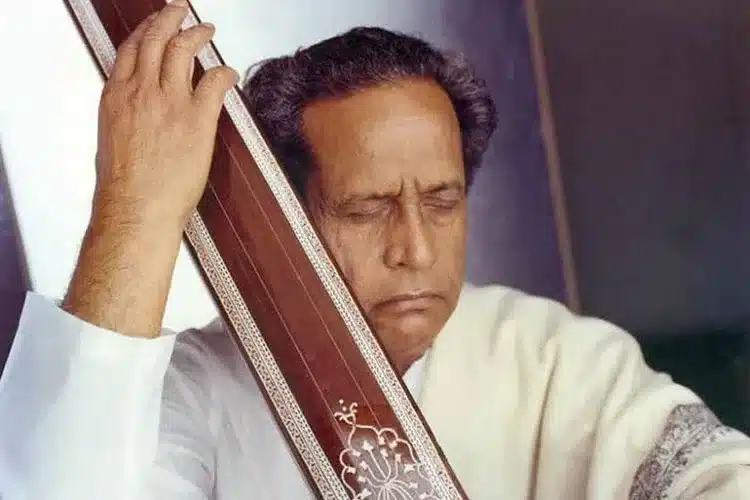Bhimsen Joshi (4 February 1922 – 24 January 2011), was an Indian classical musician.
In 2008, he received the Bharat Ratna, the highest civilian award of India.
Early Life
Bhimsen Joshi was born on 4 February 1922, in Karnataka, India. His father, Gururaj Joshi, was a schoolteacher. He used to play the harmonium and the tanpura as a kid and would follow processions with music bands.
He learned to sing from Channappa of Kurta Koti. He has studied Ragas Bhairav and Bhimpalasi, but his unique intense rendering style was the result of basic training from Channappa. Next, he went to Pandit Shyam Acharya Joshi, who was a Bagalkot priest and classical singer. He learned how to play the harmonium and sing from pandit Shyam Acharya.
Joshi was inspired to become a musician by a recording of Abdul Karim Khan’s “Piya Bin Nahi Aavat Chain” in Raga Jhinjhoti as a child. Pandit Sawai Gandharva performed in Kundgol during this time.
At the age of 11, he ran away from his home to pursue music and to find a master and learn music. He reached Dharwad first and then went to Pune with the help of some money borrowed from his fellow passengers. With the help of sarod player Hafiz Ali Khan, he got into Madhava Music School in Gwalior, run by the Maharajas of Gwalior. Three years ago, he wandered through North India looking for a good guru, including Delhi, Kolkata, Gwalior, Lucknow, and Rampur. Then, his father tracked him down in Jalandhar and brought him home. He stayed with Ustad Mushtaq Hussain Khan of Rampur Gharana for more than a year. He got guru Sawai Gandharva at Dharwad in 1936. Joshi stayed at the guru-shishi’s house.
First Live Performance
In 1941, when he was 19, Joshi performed live for the first time. HMV released his debut album the next year, with a few devotionals in Marathi and Hindi. Then he moved to Mumbai, where he worked as a radio artist. Both his guru and the audience lauded his performance at a concert celebrating his guru Sawai Gandharva’s 60th birthday in 1946. He was the first Hindustani vocalist to get a Platinum Disc in 1984.
As a tribute to his Guru, Joshi cofounded the Sawai Gandharva Music Festival. In his lifetime, Joshi himself conducted the festival until 2002, and it grew into one of Hindustani music’s biggest events.
Awards
He was awarded the Padma Shri, the Padma Bhushan, and the Padma Vibhushan, in 1972, 1985, and 1999, India’s fourth, third and second highest civilian awards.
He received the Bharat Ratna, in 2008, India’s highest civilian award. In 2009, he also received “Lifetime achievement award” from the Delhi government.
In 1998, the National Academy for Music, Dance, and Drama of India awarded him the Sangeet Natak Akademi Fellowship, the highest honor.
Death
He died on 24 January 2011, at Pune, Maharashtra, India.
Read More; Ram Singh Kuka, an Indian philosopher
Read More; Mahatma Gandhi, an Indian freedom fighter

